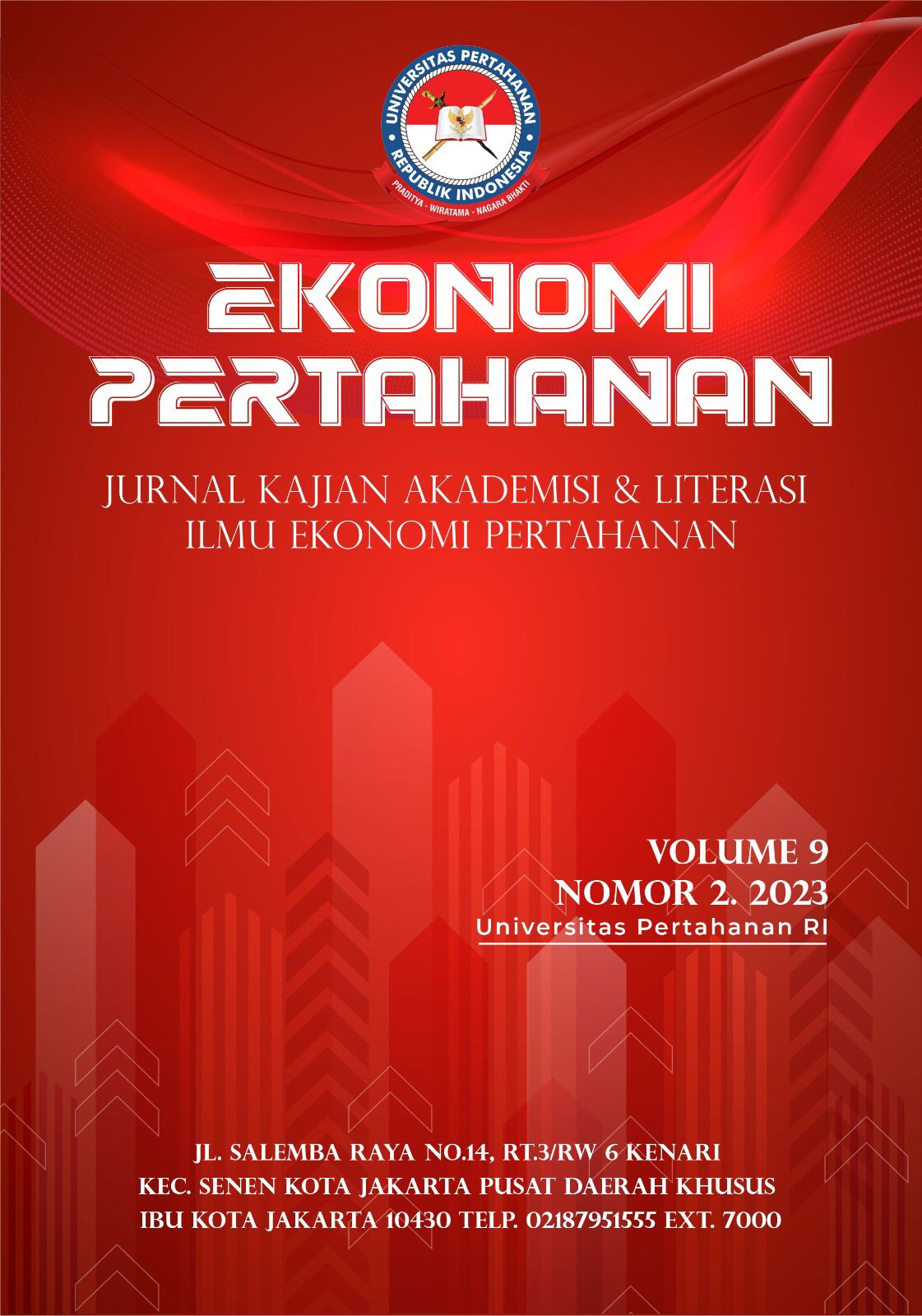THE URGENCY OF SYSTEMs THINKING FOR INDONESIA FOOD ESTATE’S PROBLEMS
Abstract
The growth of the world population has increased sharply, the covid 19 pandemic has resulted in a food crisis, this is exacerbated by the outbreak of the Russian and Ukrainian wars and the drought in Europe makes us aware of the importance of the Food Estate Program. The purpose of this study is to show the urgency of system thinking in looking at food estate problems in order to be able to streamline and support this government program to be sustainable, unlike the previous Food Estate program. The method used is systems approach as a scientific method to solve complex problems. The results of the discussion showed that this Food Estate program involving ministries or institutions from the central and regional governments runs independently and there are policy overlaps and conflicts of interest in its management between farmers and appointed entrepreneurs. Related to financing and the availability of supporting logistics such as fertilizers, modern agricultural tools are effective and efficient. marketing is also a crucial thing to discuss.so that the program that has been launched always does not last long. Policy implementation is needed according to Lukman Yudho Prakoso, this Food Estate policy must be carried out by taking into account factors that are Integrative, Interactive, Transparent, Controlled and Accountable.
References
Badan Litbang Pertanian. (2011). Buku Pintar Food Estate (1st ed.). Badan Penelitian dan Pengembangan Pertanian.
Djoko, I. E. (2020). Menteri Pertahanan RI Sebagai Leading Sector Dalam Pengembangan Food Estate Bekerjasama Dengan Menteri PUPR dan Mentan. Kementrian Pertahanan,
Gittinger, J.P. (1986). Analisa ekonomi proyek-proyek pertanian. UI Press. Jakarta.
Hajkowicz, S., Cook, H., & Littleboy, A. (2012). Our Future World: Global Megatrends That Will Change the Way We Live. Brisbane: CSIRO..
Heryana,Ade (2017) Sistem: teori, pengertian dan berfikir sistem dalam bidang kesehatan
Hester, Patrick T., dan Kevin MacG. Adams. 2014. Systemic Thinking: Fundamentals for Understanding Problem and Messes. Switzerland: Springer International. [e-book]
Hikam, M. A. (2015). Memperkuat Ketahanan Pangan: Demi Masa Depan Indonesia 2015-2025. Jakarta: Rumah Buku.
Moleong, L. J. (2007). Metodologi Penelitian Kualitatif. Jakarta: PT Remaja Rosdakarya.
Nadeak, G.T. (2009). Analisis Kelayakan Finansial dan Ekonomi Perusahaan Kayu Gergajian Merbau dan Woodworking Terintegrasi di Papua (Studi Kasus: Kabupaten Jayapura), [Tesis], Bogor. Sekolah Pascasarjana Institut Pertanian Bogor.
Prakoso, L.Y. (2021). Kebijakan Pertahanan Laut. Jakarta: Pustaka media Guru
Rahimah NS, Putro PH. (2015). Pengaruh Infrastruktur Jalan Terhadap Sebaran Investasi Di Provinsi Jawa Barat. Jurnal Perencanaan Wilayah dan Kota 2 SAPPK V3N3 663. Perencanaan Dan Pengembangan Kebijakan Institut Teknologi Bandung. Jawa Barat. (diakses tahun 2022, 29 September). https://emedia.dpr.go.id/article/pastikan-kesiapan-infrastruktur-dan-sdm-dukung-optimalnya-food-estate/
Shamsuddoha, M. (2015), "Integrated Supply Chain Model for Sustainable Manufacturing: A System Dynamics Approach", Sustaining Competitive Advantage Via Business Intelligence, Knowledge Management, and System Dynamics (Advances in Business Marketing and Purchasing, Vol. 22B), Emerald Group Publishing Limited, Bingley, pp. 155-399.
Zhang, & Sangha, Kamaljit. (2018). dalam study "SYSTEMS THINKING: AN APPROACH FOR UNDERSTANDING ‘ECO-AGRI-FOOD SYSTEMS”
Downloads
Published
Versions
- 2023-12-31 (2)
- 2024-03-04 (1)
Issue
Section
License
Copyright (c) 2024 Ekonomi Pertahanan

This work is licensed under a Creative Commons Attribution-NonCommercial-ShareAlike 4.0 International License.
Proposed Policy for Journals That Offer Open Access. Authors who publish with this journal agree to the following terms:
- Authors retain copyright and grant the journal right of first publication with the work simultaneously licensed under a Creative Commons Attribution License that allows others to share the work with an acknowledgment of the work's authorship and initial publication in this journal.
- Authors are able to enter into separate, additional contractual arrangements for the non-exclusive distribution of the journal's published version of the work (e.g., post it to an institutional repository or publish it in a book), with an acknowledgment of its initial publication in this journal.
- Authors are permitted and encouraged to post their work online (e.g., in institutional repositories or on their website) prior to and during the submission process, as it can lead to productive exchanges, as well as earlier and greater citation of published work (See The Effect of Open Access).
Proposed Policy for Journals That Offer Delayed Open Access. Authors who publish with this journal agree to the following terms:
- Authors retain copyright and grant the journal right of first publication, with the work [SPECIFY PERIOD OF TIME] after publication simultaneously licensed under a Creative Commons Attribution License that allows others to share the work with an acknowledgment of the work's authorship and initial publication in this journal.
- Authors are able to enter into separate, additional contractual arrangements for the non-exclusive distribution of the journal's published version of the work (e.g., post it to an institutional repository or publish it in a book), with an acknowledgment of its initial publication in this journal.

